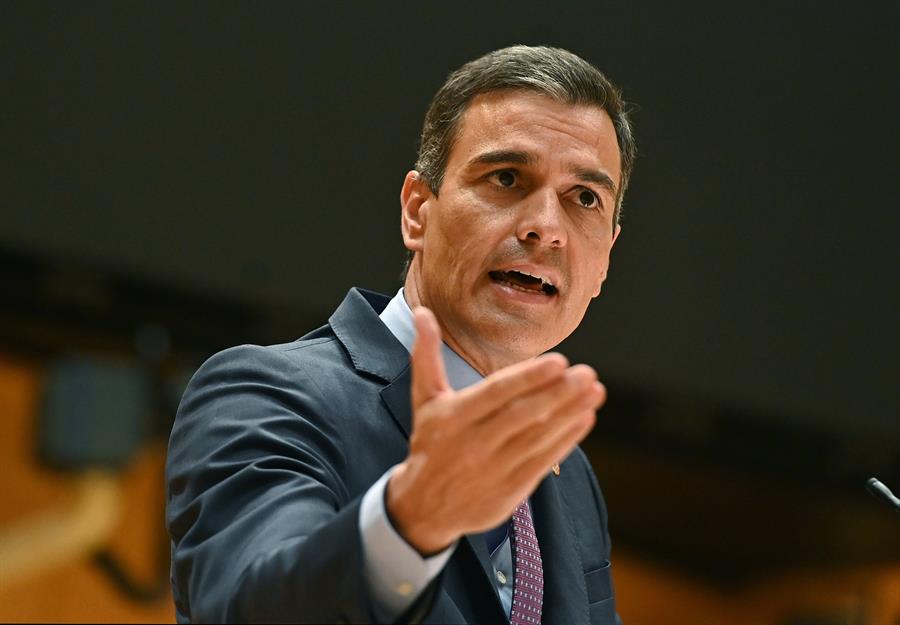26.05.2022 - 14:15
|
Actualització: 13.06.2022 - 10:05
Spain’s PM Pedro Sánchez has justified the Catalangate espionage against pro-independence leaders and has downplayed the Citizen Lab report that uncovered the scandal. “[Spain’s intelligence agency] CNI requested the mobile telephone intervention of eighteen people alluded to in the Citizen Lab report and not sixty as it was said” he said in the Spanish congress, where he appeared to give explanations about the plot of espionage that has affected the Catalan President, Pere Aragonès.
Yet, Pedro Sánchez avoided criticizing the role of intelligence during the alleged espionage scandal involving 65 pro-independence politicians, activists, journalists, lawyers and some of their relatives. As argued by the former CNI head in the official secrets committee a few weeks ago, Sánchez said that intelligence has only spied on 18 individuals and with judicial approval. “The origin of the hacking of the vast majority of the phones is unknown, outside state entities,” he said.
Facing criticism of pro-independence parties, he also claimed that intelligence services have always acted “within the legal framework.” Sánchez praised CNI during his speech, although his cabinet dismissed the institution’s director on 10 May. Indeed, he said the hacking aimed to avoid acts of “people who are willing to attack the national security, institutional stability and the public’s welfare,” referring to the protests that took place in the wake of the 2017 referendum leaders’ prison sentence in 2019.
New official secrets law
Sánchez announced a new official secrets law, replacing the one currently in force approved in 1968, during the days of the Franco dictatorship. According to him, a new law replacing that approved over half a century ago “cannot be put off, in order to adapt to the international standards and the Spanish constitution approved in 1978”. In a statement in Congress on Thursday to tackle the espionage on the pro-independence camp revealed by CitizenLab on April 18 and also the hacking of his own phone with Pegasus software, Spain’s PM said his government will pass the bill, in an effort to “modernize” legislation related to intelligence.
Sánchez also said that his cabinet will put forward another bill regulating the judicial control over the Spanish intelligence center (CNI), in order to replace the current one, approved in 2002. The amendment will be “in the same vein as the ombudsman’s recommendations, with the maximum respect for individual and political rights.” He added: “The law cannot come behind technology. Our intelligence requires a legal framework that evolves so that it can face the current challenges.”
Aiming to calm waters
The move aims to calm the waters with the left-wing pro-independence parties that supported his bid for PM in Congress and that remain key for the stability of his mandate. Specifically, the Catalan government leading party, Esquerra, who has been offering key backing since the beginning of the term, has threatened to remove their parliamentary alliance, which would put at risk Sánchez’s cabinet position and initiatives.
Indeed, last month in the lower chamber Esquerra rejected ratifying the measures enforced in order to withstand the effects of the war in Ukraine, including a 20-cent discount per liter of oil in all stations. Although the measure got the votes of a majority of lawmakers anyway, this was a major swing in the Catalan party’s approach to Madrid ever since the term began in early 2020.


